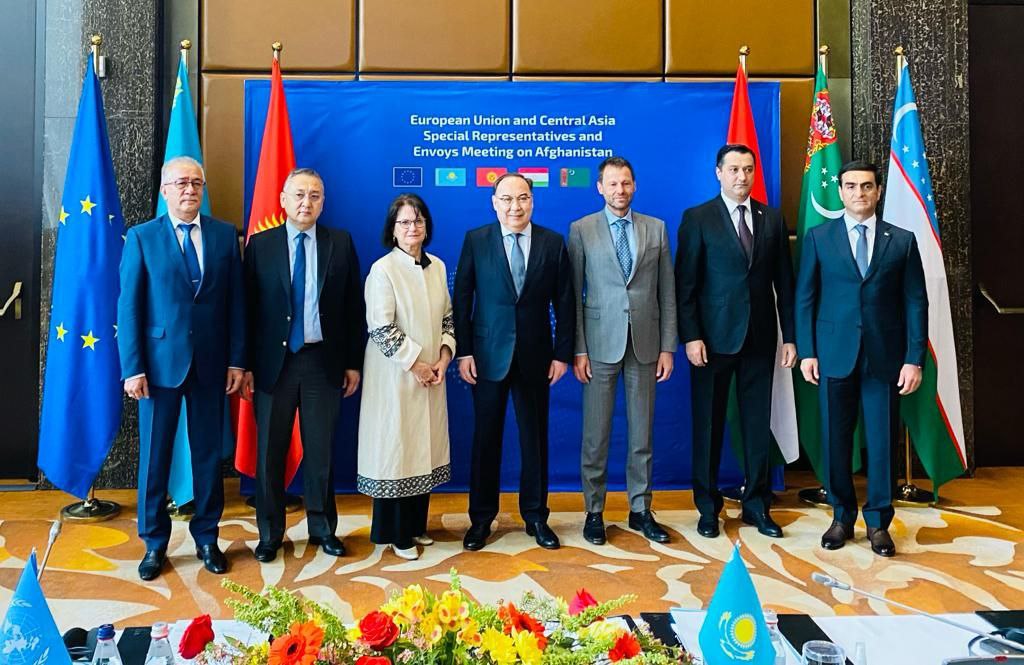NUR-SULTAN – The European Union (EU) and the Central Asian Special Representatives for Afghanistan convened in Almaty on May 31 for discussions on developments in Afghanistan, and recent policies affecting the rights and freedom of women and girls as well as solutions to challenges in the Afghan economy.

This is the second meeting of EU and Central Asia special envoys for Afghanistan. Photo credit: Kazakh Foreign Ministry
Kazakhstan’s delegation was headed by the Deputy Chief of Presidential Staff Kazakhstan – Special Representative of the President for International Cooperation – Erzhan Kazykhan. EU Special Envoy for Afghanistan Tomas Niklasson, Special Representative of the UN Secretary-General for Afghanistan and Head of the United Nations Assistance Mission in Afghanistan Deborah Lyons, and EU Special Representative for Central Asia Terhi Hakala also attended the conference.
Conference participants reaffirmed their shared aspirations for a peaceful, stable, and prosperous Afghanistan. They discussed in detail national contributions to humanitarian support for Afghanistan and considered proposals for joint implementation of bilateral and regional programs.
Addressing the conference, Kazykhan spoke about Kazakhstan’s position on the stabilization of the situation in Afghanistan and made specific proposals for strengthening security and sustainable development in the region in cooperation with the EU.
The meeting emphasized the importance of continuing the educational program for Afghan students in Kazakhstan, Kyrgyzstan, and Uzbekistan funded by the EU and implemented by the United Nations Development Programme (UNDP).
The participants highlighted the rising challenges that women and girls face in Afghanistan after the Taliban’s recent announcement that all Afghan women must cover their faces in public and leave homes only “in cases of necessity,” which contradicts fundamental human rights.
“Women and girls must be able to attend school, work and participate fully in public life. We acknowledged initiatives by the international community to address challenges facing the Afghan economy, and reiterated the importance of regional stability and of continued dialogue,” wrote Niklasson on his Twitter.
The participants also welcomed the renewed mandate of the United Nations Assistance Mission in Afghanistan.
Afghanistan faces multiple crises – a looming humanitarian emergency, a massive economic slowdown, and the fact that an inclusive government remains to be formed. The UN data indicates that over 24 million people will require humanitarian assistance in 2022, compared to 18.4 million in 2021.
